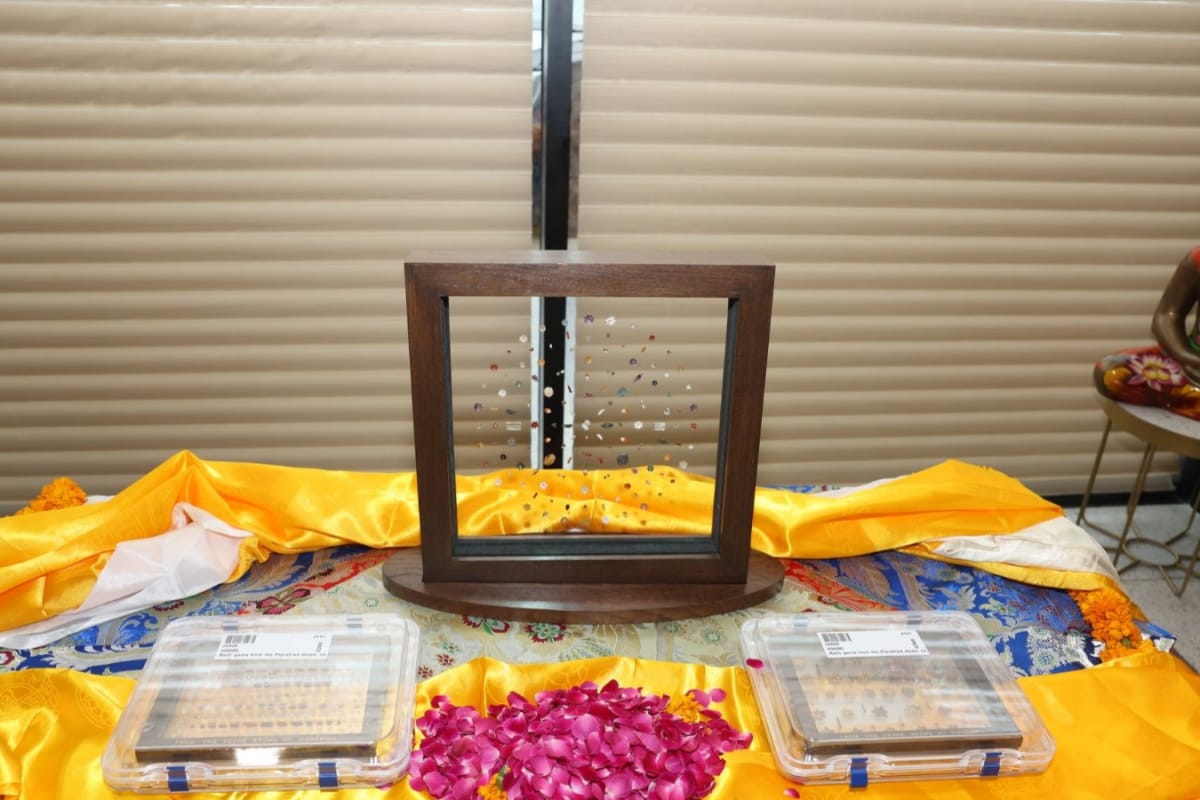

After 127 years, the sacred Piprahwa relics of Gautam Buddha are back in India, prompting Prime Minister Narendra Modi to express his joy. Discovered in 1898 during an excavation led by William Claxton Peppé, a British landowner, in Piprahwa, Uttar Pradesh, these relics hold immense historical, religious, and cultural significance. The relics include bone fragments of the Historical Buddha, along with soapstone and crystal caskets, a sandstone coffer, and offerings such as gold ornaments and gemstones. An inscription in Brahmi script on one of the caskets confirms these as relics of the Buddha, deposited by the Sakya clan.
The relics were taken away during British colonial rule. Under the colonial-era 1878 Indian Treasure Trove Act, the British Crown claimed ownership of the relics discovered by Peppé. While the majority of the relics were sent to the Indian Museum in Kolkata, a portion was retained by Peppé. This privately held collection, passed down through generations of the Peppé family, was recently listed for auction by Sotheby's, drawing objections from India and the global Buddhist community.
The Ministry of Culture took swift action to prevent the auction, emphasizing India's commitment to preserving its cultural and religious heritage. The Ministry of Culture sent a legal notice to Sotheby's and Chris Peppé, William Peppé's great-grandson, stating that the relics are an "inalienable religious and cultural heritage of India and the global Buddhist community" and are protected under various Indian laws. The Archaeological Survey of India (ASI) also requested the Consulate General of India in Hong Kong to urge local authorities to intervene. Following these efforts, Sotheby's Hong Kong postponed the auction.
Prime Minister Modi has expressed his appreciation for all those involved in ensuring the relics' return. He highlighted India's close association with Buddha and his teachings, emphasizing the government's commitment to preserving and protecting India's cultural heritage. The return of the Piprahwa relics is not just about history; it also strengthens India's connection to Buddhism and its cultural roots.
The case of the Piprahwa relics highlights the legacy of colonialism and cultural appropriation. During British rule, countless artifacts were removed from Indian soil, many ending up in museums or private collections in Europe and North America. India has stepped up efforts to reclaim stolen cultural heritage, successfully negotiating the return of several artifacts from the UK, USA, and Australia.
The Piprahwa relics are considered sacred by Buddhists, with all items interred with the Buddha's ashes—gems, ornaments, etc.—regarded as sharirik dhatu, or corporeal relics. Putting them on auction was seen as commodifying the sacred remains of Lord Buddha. The return of these relics is a significant step in rectifying historical wrongs and reaffirming India's dedication to its cultural legacy.
Now, the Ministry of Culture is planning an exposition of these relics of Lord Buddha that were deposited by the Sakyas, his kin, and found in a stupa belonging to Emperor Ashoka. The relics will first be kept at the National Museum, Bangkok, and would then be exhibited at five different venues across Thailand.